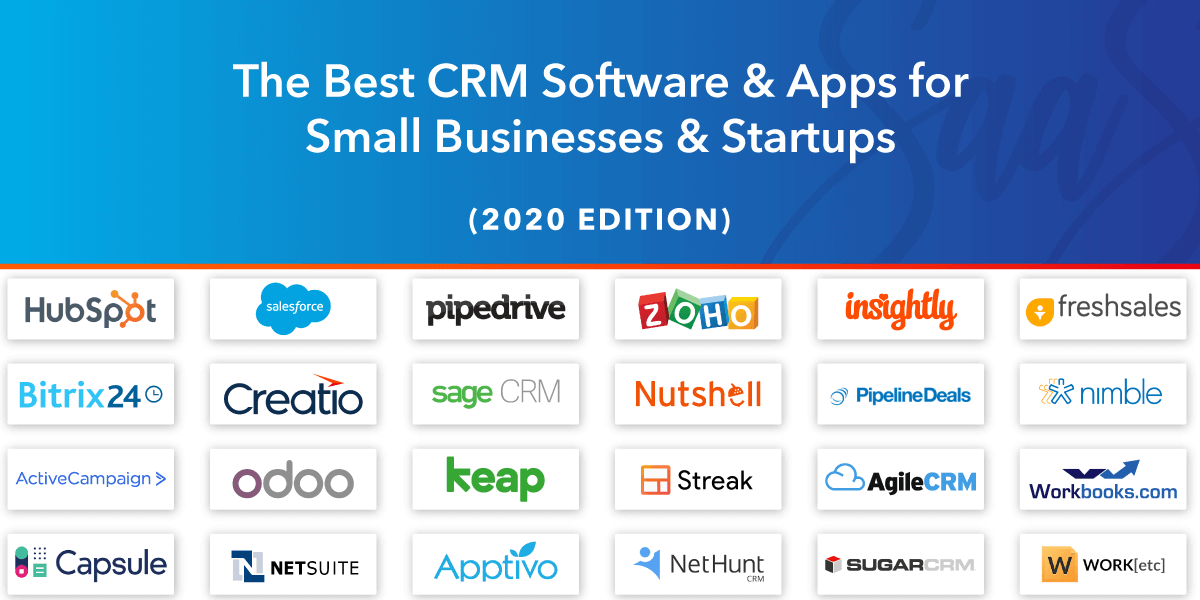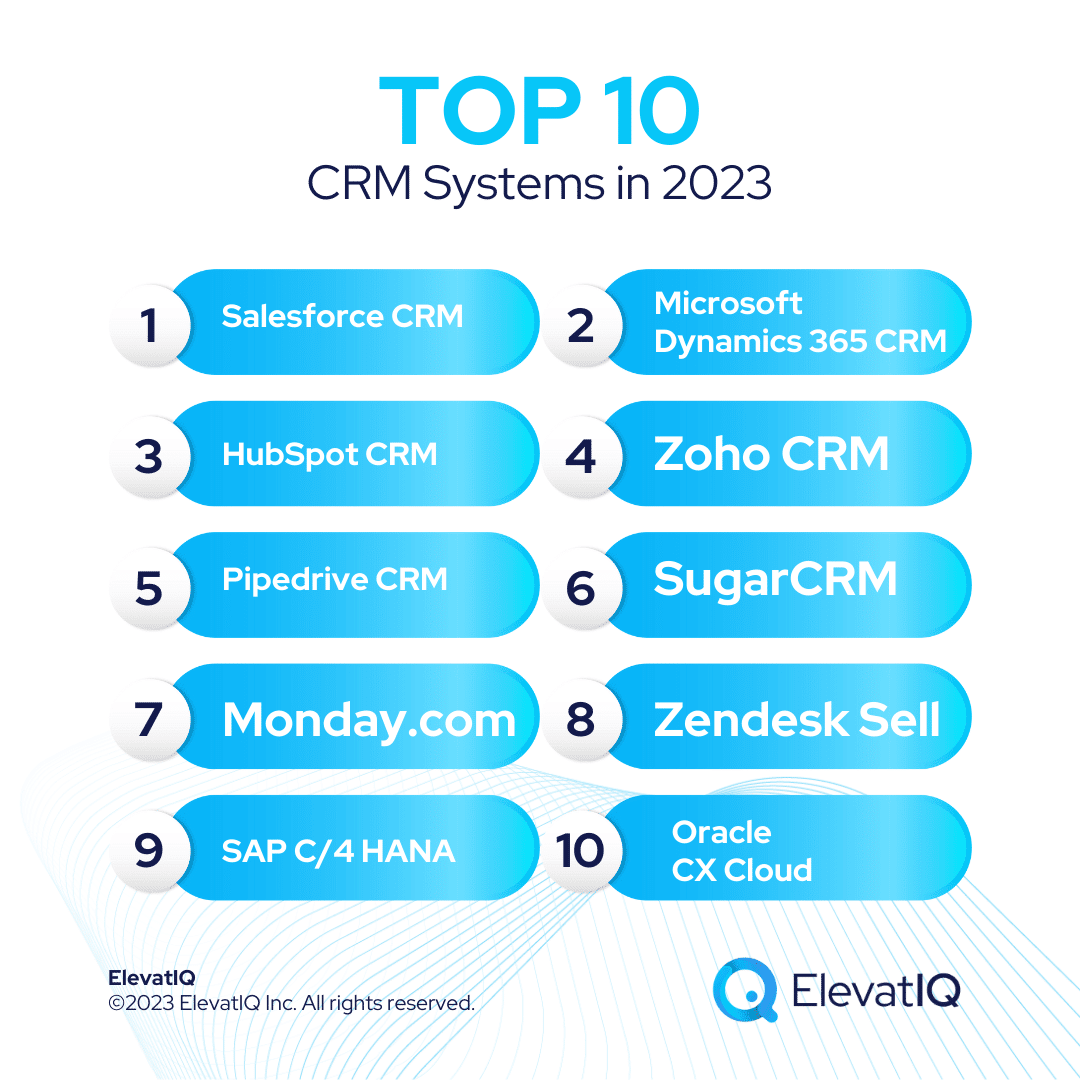Top CRM systems are essential tools for businesses looking to streamline their operations, enhance customer relationships, and drive growth. In today’s competitive market, choosing the right CRM is crucial for staying ahead of the curve.
This comprehensive guide will provide you with all the information you need to navigate the CRM landscape, from market trends to vendor comparisons, selection criteria, and best practices. Whether you’re a small business owner or a large enterprise, this guide will help you make an informed decision and unlock the full potential of CRM for your organization.
Market Overview
The global customer relationship management (CRM) market is expected to reach $81.9 billion by 2028, growing at a compound annual growth rate (CAGR) of 12.1% from 2021 to 2028. The increasing adoption of cloud-based CRM solutions, the need for improved customer experience, and the growing volume of customer data are driving the growth of the CRM market.
Key Industry Trends
- Cloud-based CRM:Cloud-based CRM solutions are becoming increasingly popular due to their flexibility, scalability, and cost-effectiveness.
- Artificial intelligence (AI):AI is being used to automate tasks, improve customer segmentation, and provide personalized recommendations.
- Customer experience (CX):CRM systems are becoming more focused on providing a seamless customer experience across all channels.
Top CRM Vendors
In the highly competitive CRM market, several vendors have established themselves as leaders with significant market share and comprehensive offerings. These top vendors provide a wide range of features and pricing options to cater to the diverse needs of businesses of all sizes and industries.
Market Share and Features
The following table provides a comparison of the top CRM vendors in terms of market share and key features:
| Vendor | Market Share | Key Features |
|---|---|---|
| Salesforce | 20% | Sales automation, marketing automation, customer service, analytics |
| Microsoft Dynamics 365 | 15% | Sales automation, customer service, field service, marketing automation |
| SAP | 10% | Sales automation, customer service, marketing automation, ERP integration |
| Oracle | 8% | Sales automation, marketing automation, customer service, analytics |
| HubSpot | 5% | Sales automation, marketing automation, customer service, website analytics |
Strengths and Weaknesses
Each vendor has its own strengths and weaknesses:
- Salesforce:Strong brand recognition, comprehensive feature set, large ecosystem of partners and integrations.
- Microsoft Dynamics 365:Deep integration with Microsoft products, strong customer service capabilities, affordable pricing for small businesses.
- SAP:Focus on large enterprises, industry-specific solutions, strong ERP integration.
- Oracle:Scalability for large organizations, strong analytics capabilities, wide range of industry-specific solutions.
- HubSpot:Ease of use, affordable pricing for startups and small businesses, focus on inbound marketing.
CRM Selection Criteria
Selecting the right CRM system is crucial for businesses looking to enhance their customer relationships and streamline their sales processes. There are numerous factors to consider when evaluating CRM systems, and it’s essential to align these criteria with your specific business objectives and requirements.
Here are some key factors to consider when selecting a CRM system:
Functionality
The functionality of a CRM system refers to the features and capabilities it offers. It’s important to assess whether the system provides the necessary features to meet your specific business needs. Consider features such as contact management, lead tracking, sales forecasting, marketing automation, and customer service tools.
Integration
CRM systems should seamlessly integrate with your existing business systems, such as your ERP, accounting software, and email marketing platform. Integration ensures data consistency and eliminates the need for manual data entry, saving time and reducing errors.
Scalability
As your business grows, your CRM system should be able to scale to accommodate your increasing needs. Consider the system’s capacity to handle a larger number of users, contacts, and transactions without compromising performance or functionality.
Security
The security of your CRM system is paramount to protect sensitive customer data. Look for systems that offer robust security features, such as data encryption, access controls, and regular security updates.
Usability, Top crm
The usability of a CRM system is essential for user adoption and productivity. A user-friendly interface, intuitive navigation, and customizable dashboards can enhance the user experience and encourage widespread adoption.
Cost
The cost of a CRM system can vary depending on the features, scalability, and support options. Determine your budget and evaluate the return on investment (ROI) potential of different systems to ensure you’re making a cost-effective decision.
Support
Reliable and responsive support is crucial for a successful CRM implementation. Look for vendors who offer comprehensive support options, such as documentation, online resources, training, and technical assistance.
CRM Implementation Best Practices

Implementing a CRM system successfully requires careful planning and execution. Here are some best practices to consider:
Define clear goals and objectives
Determine the specific business outcomes you want to achieve with the CRM system. This will guide your implementation and ensure it aligns with your overall business strategy.
Involve stakeholders early and often
Engage with key stakeholders from different departments, including sales, marketing, customer service, and IT, to gather their input and ensure their buy-in.
Choose the right CRM vendor and solution
Evaluate different CRM vendors and select the one that best meets your specific needs and requirements. Consider factors such as functionality, scalability, ease of use, and cost.
Plan for data migration and integration
Ensure a smooth transition of data from your existing systems to the new CRM system. This includes data cleansing, mapping, and integration with other business applications.
Train users thoroughly
Provide comprehensive training to all users on how to use the CRM system effectively. This will ensure they are able to maximize its functionality and achieve desired outcomes.
Monitor and evaluate performance
Regularly track key metrics to measure the effectiveness of your CRM implementation. This will help you identify areas for improvement and ensure the system continues to meet your business needs.
Common Challenges and How to Overcome Them
Implementing a CRM system can present certain challenges. Here are some common obstacles and how to address them:
Resistance to change
Employees may be resistant to adopting a new CRM system due to fear of change or disruption. Address this by communicating the benefits of the system, involving stakeholders in the implementation process, and providing adequate training.
Data quality issues
Data quality is crucial for the success of a CRM system. Ensure data is accurate, complete, and up-to-date by implementing data cleansing and validation processes.
Integration challenges
Integrating the CRM system with other business applications can be complex. Work closely with the CRM vendor and IT team to ensure seamless integration and data flow.
Lack of user adoption
If users do not adopt the CRM system, it will not deliver the desired benefits. Encourage user adoption by providing training, support, and incentives.
CRM Use Cases

CRM systems have become indispensable tools for businesses of all sizes, enabling them to manage customer interactions, track sales pipelines, and improve overall operational efficiency. Here are a few examples of how businesses are leveraging CRM systems to enhance their operations:
Improved Customer Service:CRM systems provide a centralized platform for businesses to manage customer interactions across multiple channels, including phone, email, chat, and social media. This enables businesses to track customer history, preferences, and past interactions, allowing them to provide personalized and efficient support.
Sales Management
CRM systems help businesses manage their sales pipelines by tracking leads, opportunities, and customer interactions. This allows sales teams to prioritize prospects, nurture relationships, and close deals more effectively. Additionally, CRM systems provide insights into sales performance, enabling businesses to identify areas for improvement and optimize their sales strategies.
Marketing Automation
CRM systems can be integrated with marketing automation tools to streamline marketing campaigns and nurture leads. This allows businesses to automate tasks such as email marketing, lead scoring, and social media marketing, freeing up marketing teams to focus on more strategic initiatives.
Customer Segmentation
CRM systems enable businesses to segment their customers based on demographics, behavior, and preferences. This allows businesses to tailor their marketing and sales efforts to specific customer segments, increasing the effectiveness of their campaigns and improving customer engagement.
Performance Analysis
CRM systems provide businesses with valuable insights into their performance by tracking key metrics such as customer satisfaction, sales conversion rates, and marketing ROI. This allows businesses to identify areas for improvement, make data-driven decisions, and optimize their operations for greater success.
CRM Integrations
Integrating your CRM with other business systems is crucial for streamlining processes, enhancing data accuracy, and gaining a comprehensive view of your customer interactions. By connecting your CRM with other systems, you can automate tasks, improve communication, and make better-informed decisions.
Common CRM Integrations and Their Benefits
- Marketing automation:Integrates with marketing automation platforms to track customer engagement, nurture leads, and personalize marketing campaigns.
- E-commerce:Connects with e-commerce platforms to track orders, manage inventory, and provide real-time customer support.
- Customer support:Integrates with customer support platforms to manage tickets, track customer interactions, and provide a seamless customer experience.
- Accounting:Connects with accounting systems to track revenue, manage invoices, and reconcile payments.
- Social media:Integrates with social media platforms to monitor brand mentions, engage with customers, and track campaign performance.
CRM Trends

The CRM industry is constantly evolving, with new trends emerging all the time. These trends are shaping the future of CRM, and businesses need to be aware of them in order to stay ahead of the curve.
One of the most important trends in CRM is the rise of artificial intelligence (AI). AI is being used to automate a variety of tasks, from lead generation to customer service. This is freeing up CRM users to focus on more strategic tasks, such as building relationships with customers and developing new sales opportunities.
Another important trend is the move towards cloud-based CRM systems. Cloud-based CRM systems are more flexible and scalable than on-premises CRM systems, and they can be accessed from anywhere with an internet connection. This is making it easier for businesses to manage their customer relationships on the go.
Finally, there is a growing trend towards the use of social media in CRM. Social media can be used to listen to customers, engage with them, and build relationships. This is helping businesses to improve their customer service and sales efforts.
The Impact of CRM Trends
The trends discussed above are having a significant impact on the future of CRM. AI is making CRM systems more efficient and effective, cloud-based CRM systems are making them more flexible and accessible, and social media is making it easier for businesses to connect with their customers.
As these trends continue to evolve, CRM will become an even more essential tool for businesses. Businesses that are able to leverage these trends will be well-positioned to succeed in the future.
Closing Summary

As the CRM industry continues to evolve, businesses must embrace emerging trends and leverage the power of integrations to maximize the value of their CRM systems. By carefully considering the factors Artikeld in this guide, you can select and implement a CRM that will drive customer success and fuel your business growth.
 Lingkupruang.biz.id The Ultimate Guide to CRM Mastery
Lingkupruang.biz.id The Ultimate Guide to CRM Mastery